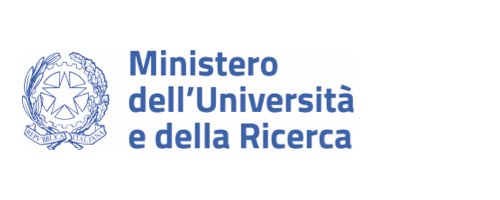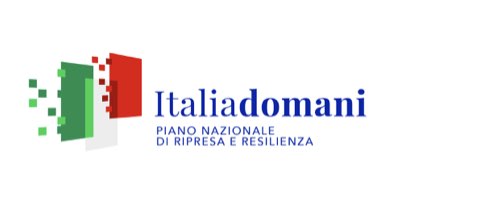Dipartimento di Scienze Biomolecolari
| A.Y. | Cycle | Venue |
|---|---|---|
| 2021/2022 | PON | Urbino |
| positions | with scholarship | without scholarship | Coordinator | |
|---|---|---|---|---|



Learning Objectives
Themes
The following areas of research can be pursued in the Biomolecular and Health Sciences Ph. D. program:
- Molecular targets and new therapeutic agents
- Cell signaling and intercellular communication
- Molecular mechanisms of disease
- Physiopathology of oxidative stress
- Diagnostic and prevention of infectious and multifactorial diseases
- Nutrition science and food safety
- Neural plasticity in physiology and pathology
- Physical activity and exercise for health promotion, disease prevention and functional rehabilitation
- Statistical and mathematical methods in biology and medicine
For the XXXVII cycle, scholarships for Green and Technological Innovation topics are also activated.
Open Day online e in presenza
Da maggio a ottobre 2024 — È il momento ideale per conoscere da vicino l’Università di Urbino e la sua offerta formativa. Non perdere l’occasione di incontrare i docenti e i tutor dei corsi di laurea.
Prospettive occupazionali
Objectives
The Ph.D. program is designed to provide students with the cognitive, critical and methodological tools so that they may acquire the necessary skills to carry out high level basic, applied and translational research in the biomolecular biotechnological sector with applications and positive spillover effects in the field of health, in accordance with Horizon Europe.
To achieve a fruitful integration of basic and applied research our program offers lines of research encompassing a vast range of interdisciplinary studies within their specific subject areas. With the support of the technological infrastructure of the Department of Biomolecular Sciences and prestigious scholars from universities and research institutes around the world, our students will receive extensive training, including in skills pertaining to the SSD BIO (area 05), MED and M-EDF (area 06).
Biomolecular and health science, the main focus of the Ph.D. program, combines elements of several ERC areas in terms of fields (all the sectors of life sciences, from LS1 to LS9) and methodologies (Physical Sciences and Engineering, PE1_14, PE4_2, PE4_11, PE4_12, PE5_6, PE5_11, PE5_14, PE5_18, PE6_12, PE6_13), providing cross interdisciplinary skills as described in the aims of the course. The range of skills that our graduates acquire will converge to forge professionals able to make contributions in the areas of disease prevention, diagnosis and therapy by developing strategies and solutions.
Contents and structure of the course / Syllabus
Activities of PhD Students
Ph.D. students will pursue research pertaining to their doctoral project under the close supervision of a tutor, and if necessary, a co-tutor, both of whom will be deeply involved in the project.
Students will be able to use the equipment at the following laboratories and centers at the University of Urbino and affiliated facilities: the biochemical and molecular analyses laboratory; the cell biology and cell culture laboratory; the optical and fluorescence microscopy laboratory; the confocal microscopy laboratory; the transmission, scanning and environmental scanning electron microscopy laboratory; the flow cytometry laboratory; the electrophysiological and calcium imaging laboratory; the mass spectrometry laboratory; the human performance laboratory; laboratories of functional rehabilitation facilities; the Gymnasium gym; enclosures for laboratory animals.
Students will have full access to the materials found in the scientific libraries of the University that boast more than 30,000 subscriptions, and approximately 37,000 scientific monographs, access to databanks (ACM, Environment Complete, Pub-med, Sportdiscus full text, Scopus, WoS, JStor, SciFinder, Scholar, PsychInfo and Psycharticles. Journal packages include Elsevier, Wiley, Springer, Emerald, Oxford University Press, American Chemical Society, American Society of Microbiology, Annual Reviews, Cell Press, Royal Society of Chemistry).
Ph. D. students will have access to the equipment in all participating departments, workstations, laboratory spaces, software and university network infrastructure.
Students in the Ph.D. program may apply for tutoring positions and may be asked to provide a maximum of 30 hours of teaching assistance.
Information about final examination
Course structure and research training
Course schedule 2021-2022
Did you know that?
Professional opportunities
Graduates of the Ph.D. program will have employment opportunities in the following areas:
universities; public and private research organizations; pharmaceutical, chemical and nutraceutical companies; the food industry; public and private chemical-clinical testing laboratories; hospitals and healthcare facilities; biobanks; museums; schools.
How to apply for the Ph.D. Programme in PON - Biomolecular and Health Sciences
- Admission
- Course with limited number of positions
- Number of positions
- 5 available ( with scholarship, without scholarship)
- Admission deadline
- Applications due by 29/10/2021
- On-line procedure
- On-line application
Information on teaching and research activities
- Contacts
- Marco Rocchi
- 0722303304 marco.rocchi@uniurb.it
Administrative contacts
- Secretary’s Office
- Ufficio Dottorati - Post laurea - Esami di Stato
- Via Veterani, 36 - Urbino
- Office hours
- Monday - Friday from 9.30 am to 13pm
- Contacts
- Tel. +39 0722 304632 / +39 0722 304646 / +39 0722 304638 dottorato@uniurb.it


